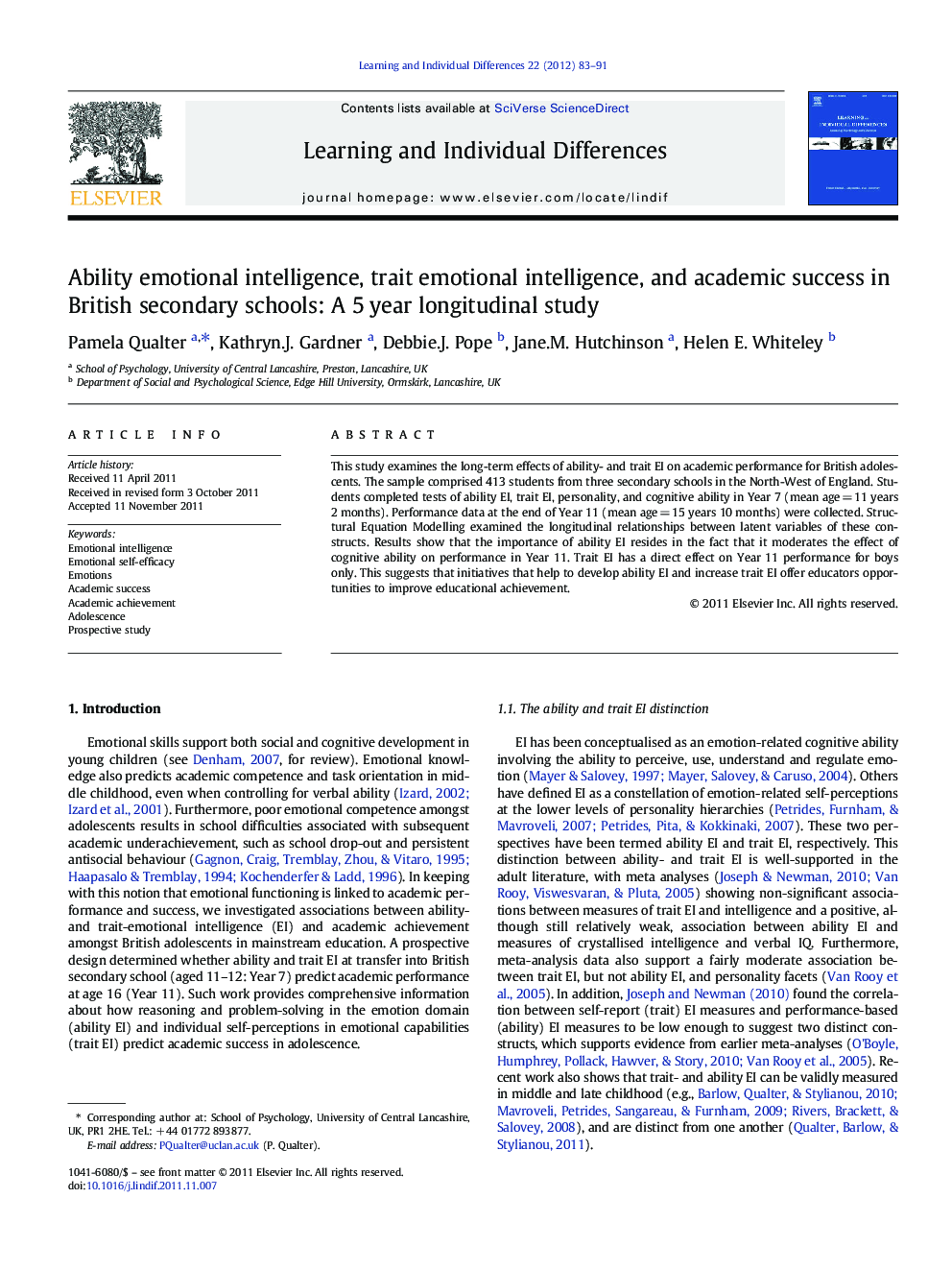| Article ID | Journal | Published Year | Pages | File Type |
|---|---|---|---|---|
| 365249 | Learning and Individual Differences | 2012 | 9 Pages |
This study examines the long-term effects of ability- and trait EI on academic performance for British adolescents. The sample comprised 413 students from three secondary schools in the North-West of England. Students completed tests of ability EI, trait EI, personality, and cognitive ability in Year 7 (mean age = 11 years 2 months). Performance data at the end of Year 11 (mean age = 15 years 10 months) were collected. Structural Equation Modelling examined the longitudinal relationships between latent variables of these constructs. Results show that the importance of ability EI resides in the fact that it moderates the effect of cognitive ability on performance in Year 11. Trait EI has a direct effect on Year 11 performance for boys only. This suggests that initiatives that help to develop ability EI and increase trait EI offer educators opportunities to improve educational achievement.
► We tested whether EI predicts academic performance over 5 years. ► We tested the moderating effect of EI on cognitive ability and academic performance. ► Cognitive ability was the best predictor of later academic performance. ► Ability EI moderated the effect of cognitive ability on academic performance. ► Teaching to improve emotional functioning may increase academic success.
